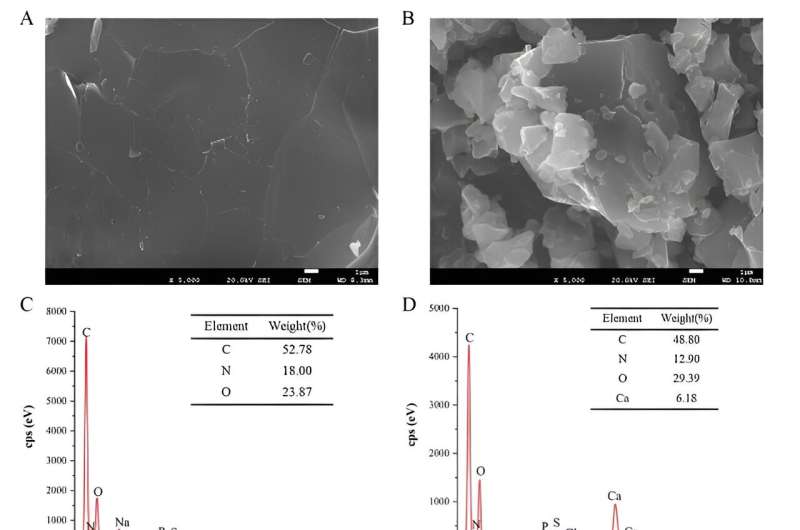This article has been reviewed according to Science X's editorial process and policies. Editors have highlighted the following attributes while ensuring the content's credibility:
fact-checked
proofread
Mung bean peptides–calcium chelate: A promising alternative to traditional calcium supplements

In a promising breakthrough for dietary supplements, researchers led by Associate Prof. Dong Lin at Guiyang University, China, have successfully synthesized mung bean peptides–calcium chelate (MBP-Ca), offering an eco-friendly and efficient source of calcium and highlighting the compound's unique properties. The study, titled "Process Optimization, Structural Characterization, and Calcium Release Rate Evaluation of Mung Bean Peptides-Calcium Chelate," was published on March 2, 2023, in Foods.
Under optimal conditions, MBP-Ca achieved an impressive calcium chelating rate of 86.26%. Unlike its precursor, MBP-Ca is rich in glutamic acid (32.74%) and aspartic acid (15.10%), signifying its distinct composition.
The study elucidates the mechanism behind calcium binding to MBP, involving carboxyl oxygen, carbonyl oxygen, and amino nitrogen atoms. This interaction leads to intra- and intermolecular interactions, resulting in the folding and aggregation of MBP. Consequently, the secondary structure of MBP-Ca exhibits a 1.90% increase in β-sheet content, a 124.42 nm size expansion, and a transformation from a dense and smooth surface structure to fragmented and coarse blocks.
In comparison to conventional calcium supplements like CaCl2, MBP-Ca demonstrates superior calcium release rates under diverse conditions, including varying temperatures, pH levels, and simulated gastrointestinal digestion. This enhanced release rate is pivotal for calcium transport and absorption, making MBP-Ca a promising dietary calcium supplement with improved bioavailability.
This research leverages mung bean-derived MBP-Ca to address environmental concerns while providing a practical dietary solution. Further investigations into MBP-Ca's absorption efficiency and specific mechanisms hold the promise of advancing dietary calcium supplementation and enhancing overall human health.
More information: Wenliang Zhai et al, Process Optimization, Structural Characterization, and Calcium Release Rate Evaluation of Mung Bean Peptides-Calcium Chelate, Foods (2023). DOI: 10.3390/foods12051058
Provided by TranSpread


















